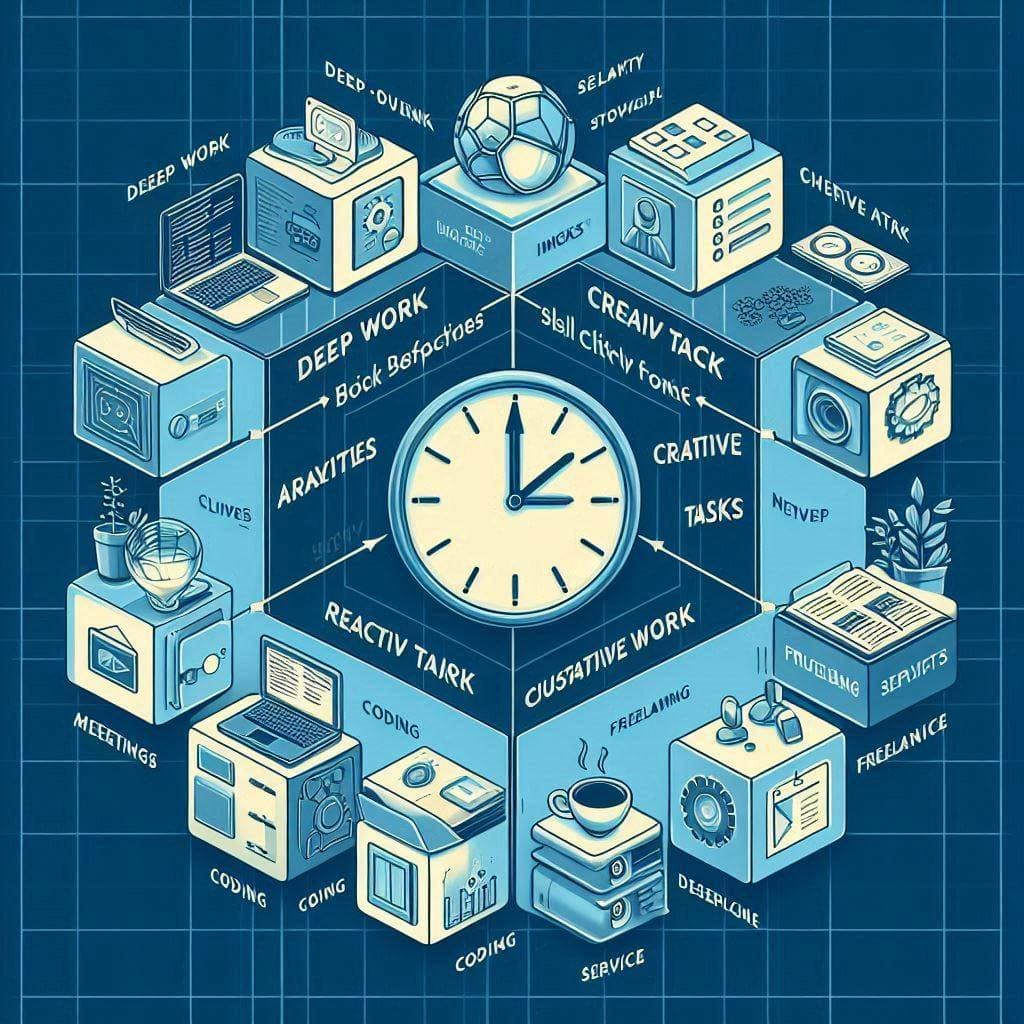To avoid overloading your schedule with too many tasks, it’s essential to adopt effective time management strategies. Here are some practical approaches:
Prioritize Tasks
- Use a Prioritization Method: Employ techniques like the Eisenhower Matrix to categorize tasks into urgent and important, allowing you to focus on what truly matters[2][3].
- Create a Master To-Do List: Maintain a comprehensive list of all tasks to prevent forgetting important items while providing an overview of your workload[3][4].
Set Realistic Goals
- Be Realistic About Your Capacity: Understand your limitations and avoid overcommitting. Assess how many tasks you can realistically handle each day based on your productivity levels[1][2].
- Break Down Tasks: Divide larger projects into smaller, manageable tasks. This makes it easier to fit them into your schedule without feeling overwhelmed[3][4].
Time Management Techniques
- Time Blocking: Allocate specific time slots for each task, ensuring you have dedicated periods for focused work. This method helps prevent multitasking and improves productivity[4][5].
- Time-Boxing: Set fixed time limits for tasks to encourage efficiency and prevent procrastination. This technique helps manage deadlines effectively[1].
Schedule Breaks and Flexibility
- Plan for Interruptions: Allow time in your schedule for unexpected interruptions or breaks. This can help maintain focus during work periods and reduce stress from unplanned events[1][2].
- Be Flexible: Recognize that priorities may shift, and be willing to adjust your schedule accordingly. Flexibility can help you manage workloads better when unexpected tasks arise[4].
Use Technology Wisely
- Leverage Time Management Tools: Utilize apps and software designed for task management and scheduling. Tools like Trello or Asana can help you organize tasks and visualize your workload more effectively[1][4].
- Track Your Time: Monitor how much time you spend on various activities to identify areas where you might be overloading yourself. Adjust your schedule based on this data to improve efficiency[4].
Regularly Review Your Schedule
- Conduct Weekly Reviews: Set aside time each week to assess your progress, evaluate what worked well, and identify areas for improvement. Adjust your task list based on changing priorities or new responsibilities[2][3].
- Eliminate Non-Essential Tasks: Regularly review your commitments and remove tasks that do not align with your goals or provide significant value[2].
By implementing these strategies, you can effectively manage your workload, maintain a balanced schedule, and enhance productivity without feeling overwhelmed.
Go From Time Management Strategies Back To Time Blocking
Go To The Leadership And Development Home Page
Citations:
[1] https://www.score.org/resource/blog-post/8-ways-manage-your-time-and-multiple-projects
[2] https://www.linkedin.com/advice/1/how-can-you-manage-multiple-tasks-effectively
[3] https://able.ac/blog/multiple-tasks/
[4] https://www.liquidplanner.com/blog/10-strategies-managing-multiple-projects/
[5] https://resourceguruapp.com/blog/time-management/time-blocking
[6] https://kissflow.com/project/how-to-manage-multiple-projects/
[7] https://asana.com/resources/managing-multiple-projects
[8] https://academiccoaching.co.uk/time-blocking-for-students-how-to-supercharge-your-revision-schedule/
Image by Gerd Altmann from Pixabay









